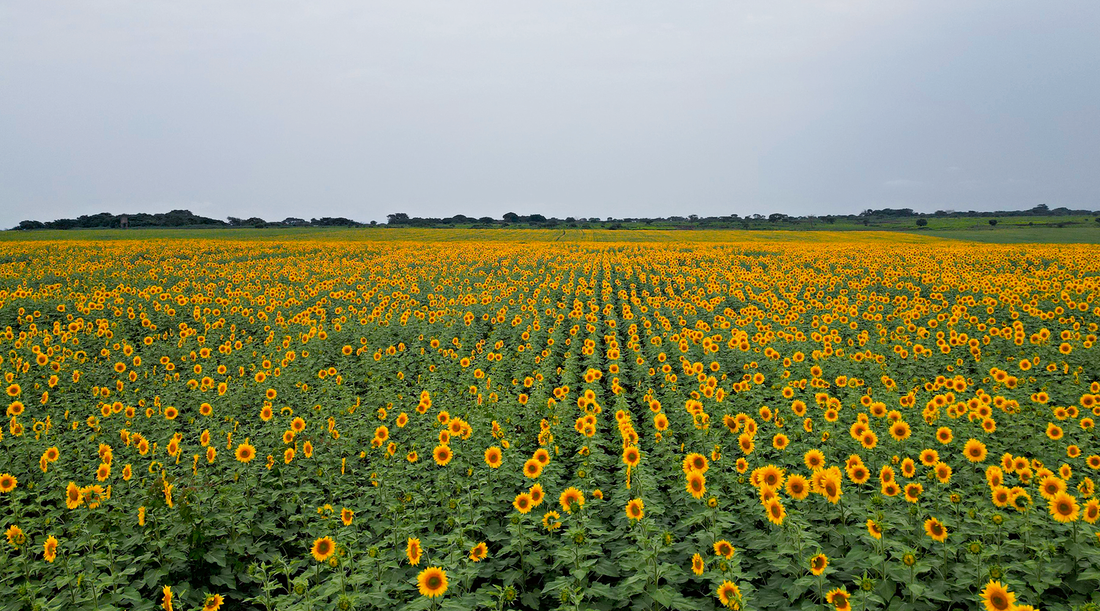
Agribusiness - A strategy for sovereignty.
Share
Angola is facing a historic opportunity to transform its economic landscape from the ground up. Agribusiness is more than just a productive sector: it is a strategy for sovereignty, prosperity, and independence. With abundant natural resources, growing energy, a dynamic youth, and political commitment, Angola has everything it needs to become an agricultural giant in Africa and an example of sustainable economic transition. Nature has already done its part. It is now up to the country — its entrepreneurs, leaders, investors and communities — to make agriculture the cornerstone of a new Angola: rich, free from dependencies and with its roots firmly planted in the future.

For decades, Angola has been known around the world as an oil powerhouse. Crude oil has shaped the economy, kept the national budget afloat, and more or less defined the country’s relationship with the world. That said, relying too much on a single natural resource made the economic model vulnerable to outside disruptions and kept other key sectors from growing.

«Angola has a historic opportunity to transform its economic landscape from the ground up.»
Today, the paradigm is beginning to shift, and agribusiness is emerging as one of the most promising drivers for a sustainable, self-sufficient, and prosperous Angola. With more than 35 million hectares of arable land, some 58% of the working population linked to the agricultural sector and a privileged geographical location, Angola ticks all the boxes to become a continental and even global success story in terms of modern, professionalised agriculture.

Angola has abundant water resources, with a river system covering around 70% of its territory, which allows for the use of artificial irrigation systems for various crops, without total dependence on rainfall, especially in the current context of climate change. This is joined by a young population with an average age of less than 20, ready to be trained and integrated into a productive economy, with a direct impact on local communities.

Investments made in recent years in the energy sector, in both dams and renewable energies, have created the conditions necessary to support agro-industrial units, processing centres and integrated agricultural development zones, with lower energy costs and reduced environmental impact.

The country still imports around 70% of the food it consumes, according to World Bank figures. This imbalance is one of the country’s major challenges. Investing in production models that are suited to the region, culture and socio-economic context, adapted to the principles of climate resilience, efficient water use, waste reuse and responsible use of chemicals, is essential to reduce the cost of imports, ensure domestic food security and transform agriculture into an export industry. Domestic production of cereals, tropical fruits, vegetables, roots and tubers has been on the rise, driven by companies investing in technology, certification and good agricultural practices.

Professional and structured agriculture has a clear ripple effect on the economy: it creates direct and indirect jobs, provides training, involves communities in production systems, stops people from leaving rural areas, and creates a dynamic rural ecosystem that also fuels the secondary and tertiary sectors. For every large agricultural operation established, new opportunities arise: from transport and logistics to packaging, preservation, processing, sales and export. This value chain has the potential to employ thousands of young people and promote balanced territorial development, combating urban overcrowding in major cities.
«[...] agribusiness is emerging as one of the most promising levers for a sustainable, self-sufficient and wealthy Angola.»
The truly qualitative leap in Angolan agribusiness will come with the expansion of agro-industrial processing. The country cannot just produce — it has to process, package and export value-added production under its own brand. Agricultural industrialisation creates higher value products, reduces post-harvest losses (which still exceed 30% in some regions) and positions Angola as a reliable supplier in exacting international markets. Special Economic Zones, programmes to stimulate domestic production (such as PLANAGRÃO and PRODESI) and incentives for the productive sector have played an important role, but there is still a long way to go, especially in terms of access to finance, technical training for personnel and rural logistics. Angola has slowly been gaining ground in international markets through its premium quality tropical fruits (such as bananas, mangoes, dragon fruit, pineapples and passion fruit), single-origin coffee and honey from native forests. The focus on certification, good agricultural practice models and the clear definition of products with a competitive advantage represent decisive structural measures in positioning Angolan agribusiness as an international brand of excellence. And because agriculture is a science and evolution goes hand in hand with competitiveness, the future of the sector also depends on the modernisation and digitisation of production systems, data analysis and processing, the use of precision technology, artificial intelligence and, above all else, the on-going training of technical staff and rural managers.
«The real qualitative leap in Angolan agribusiness will happen with the strengthening of agro-industrial transformation.»
Text: Carla Martins
Photography: Rights Reserved
